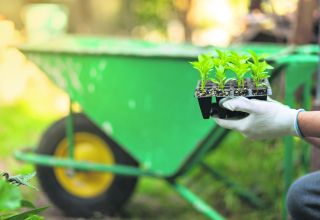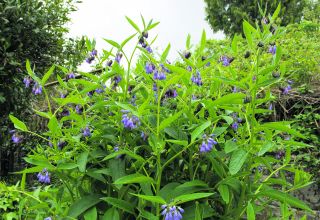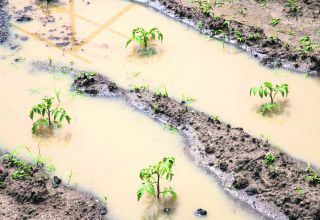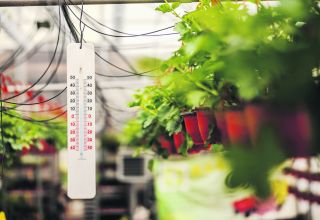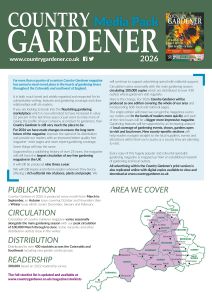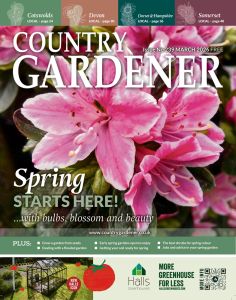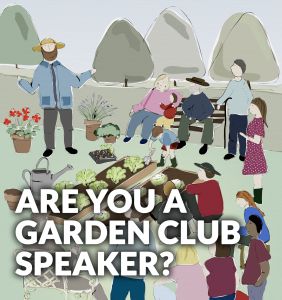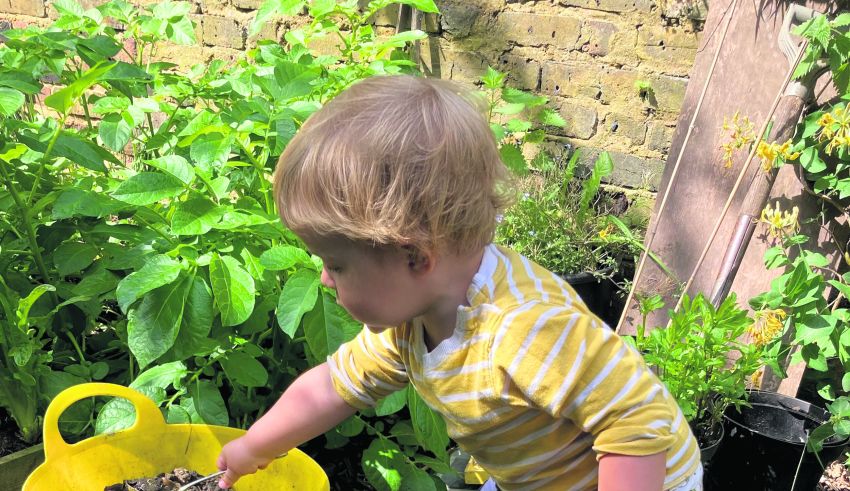
Gardening with children can be very rewarding as Devon mother of two Tracey Jones has found. It’s something that offers lots of educational, and emotional benefits. It encourages curiosity, nurtures responsibility, promotes healthy habits, and strengthens bonds between children and caregivers. At the same time, it needs a lot of patience and cleaning.
Gardening with young children isn’t just about growing tomatoes—though tomatoes do play a key role—it’s about planting seeds of curiosity, patience, and unexpected hilarity. Gardening with children can be a bonding experience and fun. It offers lots and lots opportunities for learning and growth, both for the child and the adult. However, like any activity involving young children, it also comes with its share of challenges.
Despite the mess, the drama, and the unexpected worm-eating incident (it only happened once, I swear), gardening with children is one of those rare parenting activities that’s both wholesome and genuinely fun.
You’ll teach them patience, perseverance, and how to bounce back when something doesn’t grow the way they hoped. You’ll watch them discover the magic of nature and see their faces light up when they harvest their first carrot—even if it’s half the size of a baby carrot and oddly shaped like a toe.
Gardening teaches them that good things take time. That dirt washes off. That bugs have a purpose. That you can start with almost nothing—just a seed and some soil—and end up with something amazing.
And if all else fails, you can always plant more cherry tomatoes. Kids will eat those straight off the vine.
Learning without a lecture
Kids are natural scientists. Hand them a packet of seeds and a watering can, and suddenly you’ve got a botanist-in-training. Gardening teaches biology, weather, seasons, responsibility, and maths The difference is, they’re learning through doing, not staring at a whiteboard or screen. Gardening provides a hands-on learning environment that can properly help subjects such as science, math, and even literacy. Children are keen observers of processes like plant life cycles, pollination, and weather patterns, helping them grasp complex scientific concepts in an engaging way.
A secret weapon against screen time
Taking children away from screens can feel like major negotiations. Gardening in comparison is a form of moderate physical exercise that can improve. Tasks such as digging, planting, watering, and weeding help develop hand-eye coordination and muscle strength. Unlike passive screen time, gardening gets children moving, bending, and lifting, which supports their physical health and helps combat sedentary lifestyles.
Emotional and mental well-being
Spending time in nature has been shown to reduce stress, anxiety, and symptoms of depression. Gardening promotes mindfulness as children focus on caring for their plants and observing changes in the environment. Watching a seed grow into a blooming flower or a vegetable they can eat provides a sense of accomplishment and boosts self-esteem. For some children, especially those with special needs, gardening can offer a calming and therapeutic outlet.
They actually eat the vegetables
Not all children will suddenly develop a passionate love for kale just because they planted it, but you’d be surprised how often they’ll munch a raw carrot or nibble a cherry tomato if they grew it themselves. Growing fruits, vegetables, and herbs can certainly encourage children to try and enjoy nutritious foods. They are more likely to taste and appreciate what they have grown themselves. This can lead to healthier eating patterns, reduced reliance on processed foods, and an increased interest in cooking and nutrition. Gardening gives children a tangible connection to where their food comes from.
The bad news…
Of course, gardening with children is not all daisies and delighted giggles. Sometimes it’s sweat, tears, and a suspiciously dug-up potato patch.
Physical safety risks
Gardening involves tools, soil, and sometimes potentially harmful plants or insects. Without proper supervision, children might injure themselves with sharp tools, trip over hoses, or encounter thorns, stinging insects, or allergenic plants. Ensuring a child-safe garden setup—with age-appropriate tools and clearly defined boundaries—is crucial to minimizing risks.
Mess and clean-up
Gardening is inherently messy, which can be off-putting for some adults. Dirt, mud, and water can create clean-up challenges, especially if the garden is inside or close to the home. Managing expectations and preparing appropriately—with smocks, gloves, and designated clean-up areas—can help with this .The line between ‘digging to plant carrots’ and ‘digging a moat around the sandbox’ ‘is thin. One minute you’re demonstrating how to use a trowel, the next they’ve gone full archaeologist in your flowerbed.
Selective watering habits
Some plants will receive zero water. Others will be so loved, they drown. Then there’s the possibility your child forgets to aim the watering can at all and soaks you, the dog, or their own shoes instead. Children may not understand the intricacies of plant care or pest control. They might overwater plants, step on seedlings, or inadvertently spread pests. Teaching children slowly and supervising closely can prevent this, but it requires patience and a willingness to accept some trial and error. Using natural, non-toxic pest control methods is especially important in a child-friendly garden.
Time and commitment
Gardening really does need consistent effort over weeks or months, which can be challenging to maintain, particularly during busy school schedules or family holidays. If interest wanes or time becomes limited, plants may wither, and children may feel discouraged. But it is above all and for most of the time very rewarding.

